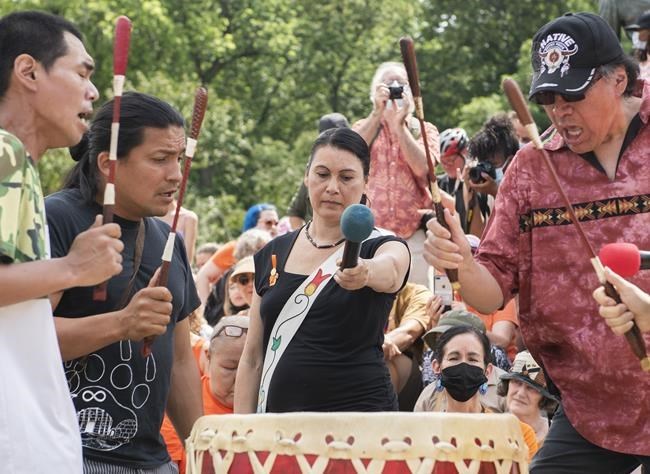MONTREAL — An Inuk teenager at a Montreal-area rehabilitation centre who sought help for "excruciating" pain was instead allegedly put in isolation for several hours before he required emergency surgery, an Indigenous rights advocate said Thursday.
Nakuset, who uses one name and is the director of the Native Women's Shelter of Montreal, compared the decision to isolate the teen to "torture."
"I can't imagine how much pain he must have been in," Nakuset said.
Quebec's youth rights commission has opened an investigation into the incident, which allegedly occurred in April.
"According to the information reported, the child was placed in isolation for prolonged periods," the commission wrote in a news release. "He would not have received the required health care in a timely manner, thus worsening his situation."
The commission is also investigating allegations that the youth was forbidden to speak his own language at the centre.
Nakuset said she was approached in August by a person who denounced the teen boy's treatment at the Batshaw Youth and Family Centres facility in Prévost, Que., northwest of Montreal.
She later heard the youth's account first-hand after he decided to come forward. The teen, Nakuset said, woke up one night in April in "excruciating" pain and tried to ask workers at the facility for help.
After he was given an over-the-counter painkiller and told to go to bed, the teen's pain worsened to the point where he began banging on the wall and asking for an ambulance, Nakuset said.
"He starting to bang the wall because they kept leaving him and ignoring him," she said in a phone interview. "But instead, they put him in isolation."
She said the youth was placed in isolation for several hours, where he eventually vomited from pain. Later that morning, he was brought to hospital, where he needed emergency surgery, she said.
A spokesperson for the health authority that oversees the rehabilitation centre said it could not comment on the case because of privacy concerns, but it stressed that the organization does not tolerate violence, discrimination or racism.
"When allegations of such behaviour are brought to our attention, we take them very seriously and immediately put actions in place to shed light on them," said Hélène Bergeron-Gamache of the CIUSSS de l’Ouest-de-l’Île-de-Montréal.
Nakuset and Fo Niemi of the Center for Research-Action on Race Relations say it's time for a full investigation into the treatment of Indigenous youth in care.
"When we talk about systemic racism — it’s allowable to mistreat Indigenous people," Nakuset said. "You will get away with it."
Nakuset said her organization cut ties with Batshaw last year because it failed to act on the many recommendations sent its way.
Indigenous youth continue to be overrepresented in the youth protection system, which often worsens the intergenerational trauma inflicted on them by residential schools and government policy, she said.
The health authority, meanwhile, said it has taken action to protect the "cultural security" of the youth under its protection, including by hiring Indigenous staff and rewriting policies to affirm young people's rights to speak Indigenous languages.
This report by The Canadian Press was first published Oct. 13, 2022.
Morgan Lowrie, The Canadian Press




